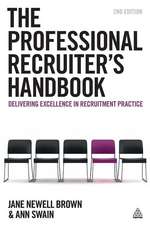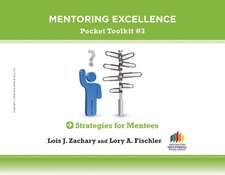Improving Workplace Learning: Emerging International Perspectives
Geraldine Castletonen Limba Engleză Hardback – 31 oct 2006
Preț: 865.83 lei
Preț vechi: 1181.83 lei
-27% Nou
Puncte Express: 1299
Preț estimativ în valută:
165.73€ • 180.08$ • 139.30£
165.73€ • 180.08$ • 139.30£
Carte disponibilă
Livrare economică 31 martie-14 aprilie
Preluare comenzi: 021 569.72.76
Specificații
ISBN-13: 9781594545665
ISBN-10: 1594545669
Pagini: 296
Ilustrații: tables
Dimensiuni: 260 x 180 x 25 mm
Greutate: 0.71 kg
Editura: Nova Science Publishers
ISBN-10: 1594545669
Pagini: 296
Ilustrații: tables
Dimensiuni: 260 x 180 x 25 mm
Greutate: 0.71 kg
Editura: Nova Science Publishers
Cuprins
Introduction; Learning at Work: Organisational readiness and individual engagement; Essence of engagement: Social capital in workplace learning; Learning and knowing in workplaces: How do people learn in their work?; Gender perspectives in workplace learning; Trades Union representations in workplace language and literacy in the United Kingdom; Distributed cognition: Understanding tensions embedded in workplace knowledge and skills; Contextual knowledge and learning processes at work; Re-framing competence development at work; Practical knowledge in workplace learning; Putting language, literacy and learning to work: Exploring (emerging discourses); Numeracy for empowerment in the workplace; Towards creating a collective executive leadership and learning process; Formal and informal learning opportunities of First-Line Nurse Managers; Contradictions in lean production -- Commitment and resignation; The interface of mentoring with management and human resource development in todays organisations; Problem-based learning in the engineering workplace; Self-evaluation as a support for workplace learning; Self-driven workers as life-long learners; Conclusions: Challenges for improving workplace learning; Index.













